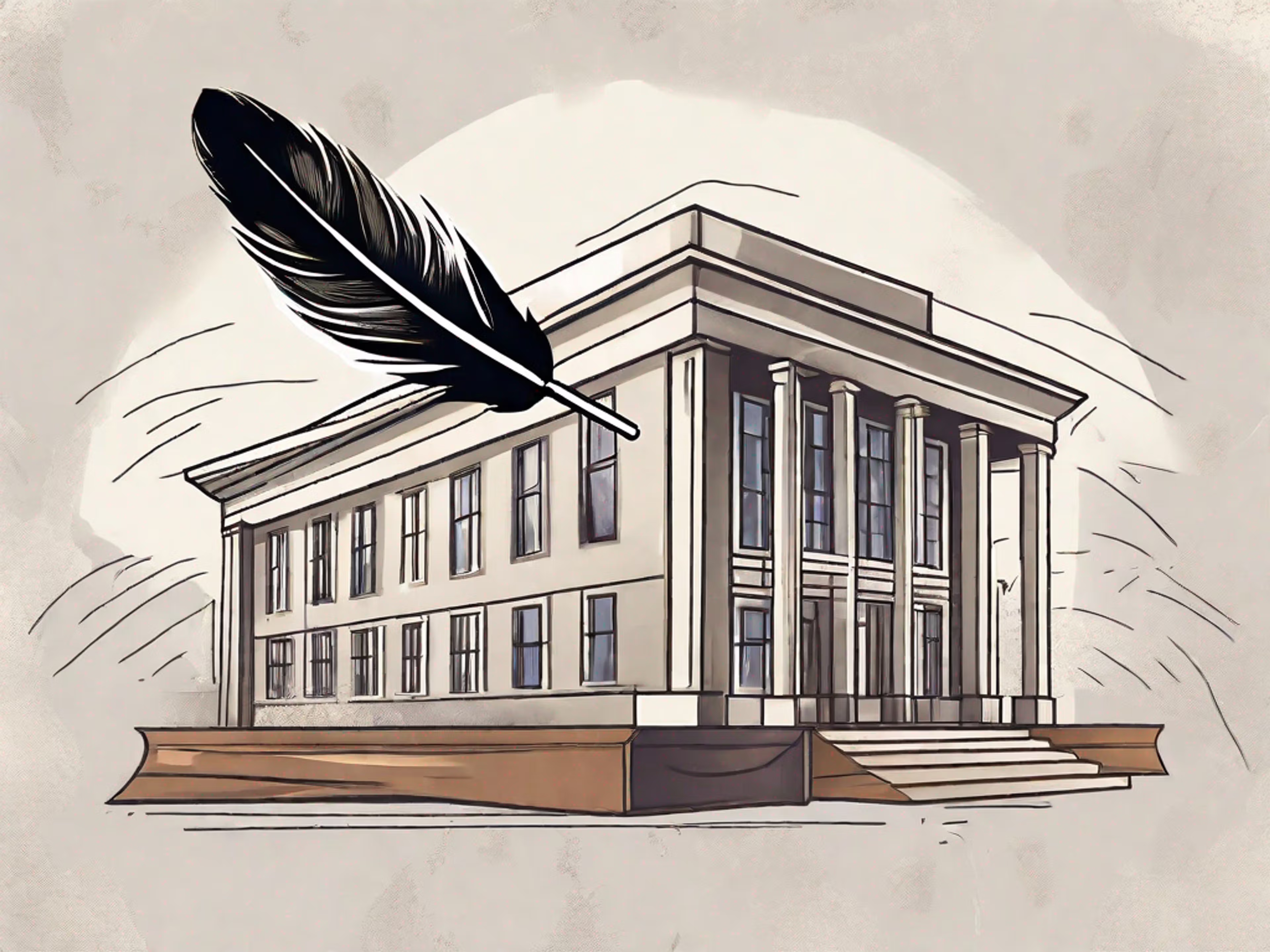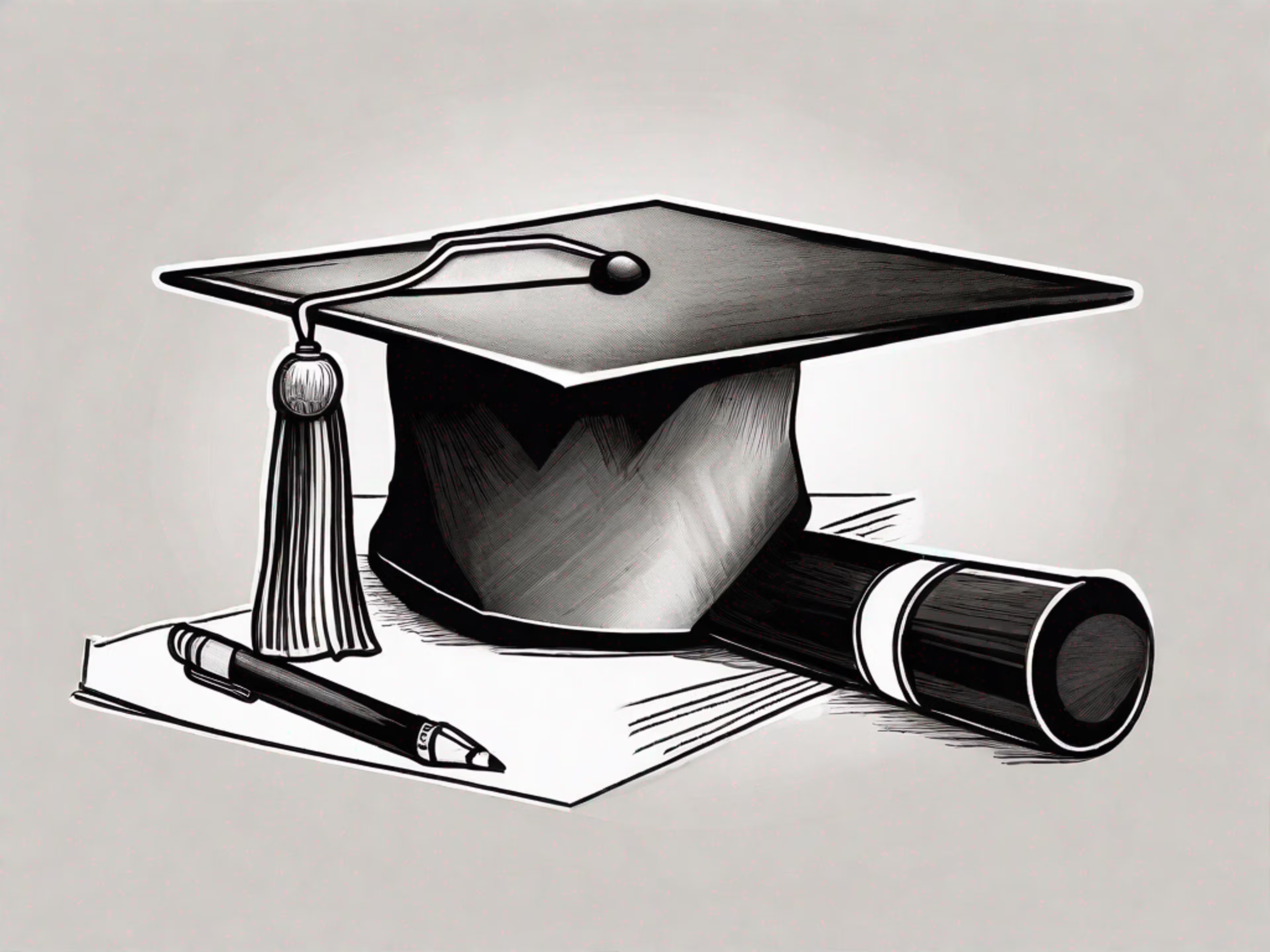Vanderbilt Owen MBA Letters of Recommendation Guide - Questions, Tips, & Examples
This comprehensive guide to Vanderbilt Owen MBA letters of recommendation provides valuable insights, expert tips, and real-life examples to help you navigate the application process with confidence.
Posted March 6, 2025

Table of Contents
If you are considering applying to the Vanderbilt Owen MBA program, you may be wondering about the role of letters of recommendation in the admissions process. This guide will provide you with valuable insights, tips, and examples to help you navigate this important aspect of your application.
Brief Intro to Vanderbilt Owen and The Role of Letters of Recommendation
Vanderbilt Owen Graduate School of Management is a prestigious institution known for its rigorous academics and collaborative learning environment. The admissions committee carefully considers each aspect of your application, and letters of recommendation play an essential role in assessing your suitability for the program.
These letters provide the admissions committee with an external perspective on your qualifications, experiences, and potential as a future leader in business. They give insights into your character, work ethic, and interpersonal skills that might not be evident from your academic achievements or personal statement alone.
When selecting recommenders, it is important to choose individuals who can accurately evaluate your abilities and provide valuable insights into your professional and personal qualities.
One aspect that the admissions committee pays close attention to is the credibility of the recommenders. They look for recommenders who have a solid understanding of your capabilities and can provide specific examples to support their claims. It is crucial to select recommenders who have worked closely with you in a professional or academic setting and can speak to your strengths and potential.
Additionally, the admissions committee values diversity in the perspectives provided by the recommenders. It is beneficial to have recommenders from different areas of your life, such as professors, supervisors, or mentors, who can offer unique insights into your abilities and potential.
Furthermore, the admissions committee understands that not all applicants have the same opportunities for recommendation letters. They take into consideration the context in which the letters are written and understand that some applicants may have limited access to professionals who can provide recommendations. In such cases, they encourage applicants to provide letters from individuals who can speak to their character, leadership potential, or personal qualities.
It is important to note that letters of recommendation should not be written by family members or close friends, as their opinions may be biased and lack objectivity. Instead, it is advisable to choose individuals who can provide an unbiased assessment of your abilities and potential.
In conclusion, letters of recommendation are a crucial component of the Vanderbilt Owen application process. They provide the admissions committee with valuable insights into your qualifications, experiences, and potential as a future business leader. By carefully selecting recommenders who can accurately evaluate your abilities and provide diverse perspectives, you can enhance your chances of being admitted to the program.
Vanderbilt Owen Recommender Questions (2023-2024)
If you have chosen your recommenders, you may be wondering what questions they will be asked. While the specific questions may vary from year to year, here are some typical prompts that recommenders have been asked in the past:
- How long have you known the applicant and in what capacity?
- What are the applicant's key strengths and weaknesses?
- Can you provide specific examples of the applicant's leadership skills?
- How does the applicant handle challenging situations?
- How does the applicant demonstrate teamwork and collaboration?
These questions provide recommenders with guidance on what the admissions committee is looking for in their evaluations. It is important for you to have open and honest conversations with your recommenders so that they can provide comprehensive and compelling responses.
When it comes to the first question, "How long have you known the applicant and in what capacity?", the admissions committee is interested in understanding the depth and breadth of your relationship with the applicant. They want to know if you have had enough exposure to the applicant to provide a well-rounded assessment of their abilities and character. It is important to provide a specific timeframe and describe the nature of your interaction with the applicant. This could include working together on a project, being colleagues in a professional setting, or even being friends outside of work or school.
Moving on to the second question, "What are the applicant's key strengths and weaknesses?", the admissions committee is looking for an objective evaluation of the applicant's abilities. It is important to provide specific examples to support your assessment. Highlighting the applicant's strengths will give the admissions committee a clear picture of what the applicant brings to the table and how they can contribute to the program. When discussing weaknesses, it is important to do so constructively and provide suggestions for improvement. This shows that you have a balanced perspective and are invested in the applicant's growth.
The third question, "Can you provide specific examples of the applicant's leadership skills?", gives you an opportunity to showcase the applicant's ability to lead and influence others. Leadership skills are highly valued in business school, as they demonstrate the potential for future success in managerial roles. It is important to provide concrete examples of situations where the applicant demonstrated leadership qualities, such as taking initiative, motivating others, and making tough decisions. These examples should highlight the impact the applicant had and the positive outcomes achieved.
As for the fourth question, "How does the applicant handle challenging situations?", the admissions committee wants to assess the applicant's resilience and problem-solving abilities. This question provides insight into how the applicant deals with adversity and whether they have the ability to navigate through difficult circumstances. It is important to provide specific examples of challenging situations the applicant faced and how they handled them. This could include overcoming obstacles, adapting to change, or finding innovative solutions to complex problems.
The fifth and final question, "How does the applicant demonstrate teamwork and collaboration?", focuses on the applicant's ability to work effectively with others. Business schools place a strong emphasis on teamwork, as it is a critical skill in the professional world. It is important to provide examples of situations where the applicant actively contributed to a team, fostered collaboration, and achieved collective goals. Highlighting the applicant's ability to communicate, listen, and respect diverse perspectives will demonstrate their potential to thrive in a collaborative environment.
By addressing these questions in detail, you will provide your recommenders with a clear understanding of what the admissions committee is looking for. This will enable them to provide comprehensive and compelling responses that highlight your strengths and potential as an applicant. Remember to have open and honest conversations with your recommenders to ensure they have all the necessary information to write a strong recommendation on your behalf.
Expert Tips for Powerful Vanderbilt Owen Recommendation Letters
Writing a strong recommendation letter can significantly enhance your application. Here are some expert tips to help your recommenders craft impactful letters:
- Be Specific and Concrete: Encourage recommenders to provide concrete examples and specific anecdotes that illustrate your abilities and character traits. These details will make the letter more compelling and memorable.
- Showcase Diversity of Skills: Remind your recommenders to touch on various aspects of your skillset, such as leadership, problem-solving, teamwork, and adaptability. This will give the admissions committee a holistic view of your capabilities.
- Highlight Personal Attributes: In addition to professional skills, your recommenders should also emphasize your personal attributes, such as integrity, resilience, and emotional intelligence. These qualities can set you apart from other applicants.
- Provide Relevant Information: Share relevant information, such as your career goals, academic achievements, or extracurricular involvements, with your recommenders. This will help them tailor their letters to support your specific aspirations and highlight relevant experiences.
Example Owen Letters of Recommendation From Successful Admits
It can be helpful to read examples of strong recommendation letters to get a better understanding of what makes them effective. Here are a few excerpts from letters of recommendation that played a role in successful admissions to Vanderbilt Owen:
"I had the pleasure of working closely with [applicant's name] for two years, and I was consistently impressed by their strong analytical skills and strategic mindset. They have a natural ability to dissect complex problems and develop innovative solutions."
"In my interactions with [applicant's name], I have been struck by their exceptional interpersonal skills. They have a remarkable ability to connect with individuals from diverse backgrounds and build strong relationships based on trust and respect."
Reading these examples can give you insights into the qualities that admissions committees value and can serve as inspiration for your own recommenders.
Vanderbilt Owen Letters of Recommendation FAQs
As you navigate the process of securing strong letters of recommendation, you may have some common questions. Here are answers to a few frequently asked questions:
- How many letters of recommendation are required for Vanderbilt Owen?
Vanderbilt Owen requires two letters of recommendation.
- Should I choose recommenders solely based on their job titles?
No, it is more important to choose recommenders who have had direct and meaningful experiences working with you and can provide valuable insights into your strengths and potential.
- Can I submit additional letters of recommendation?
While Vanderbilt Owen only requires two letters of recommendation, you may choose to submit an additional letter if it uniquely adds to your application.
If you have further questions about the letters of recommendation process, it is advisable to reach out directly to the Vanderbilt Owen admissions team for clarification.
Securing strong letters of recommendation can greatly enhance your chances of admission to the Vanderbilt Owen MBA program. By following the tips provided in this guide and ensuring that your recommenders highlight your unique qualities, you can present a compelling case for your admission. Good luck with your application!


















